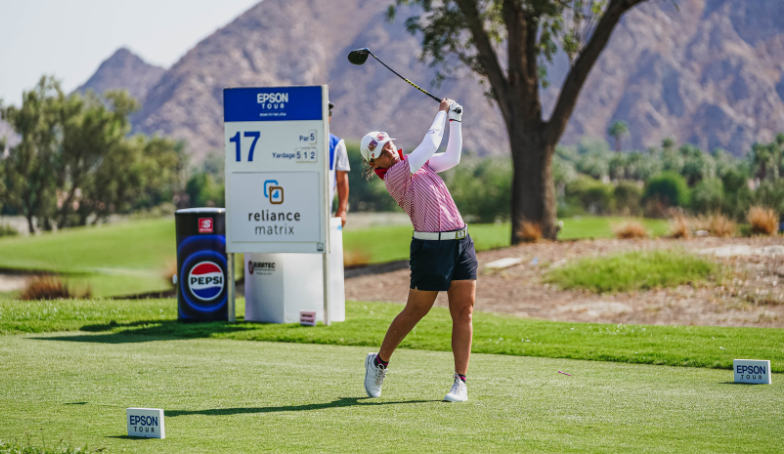Not everyone gets to make a career out of their passion. Professional golfer Dana Fall is one of the exceptions.
The 31-year-old Arizonan has been playing golf since she was a kid. She played all through high school and earned herself a scholarship to play for the University of Nevada Las Vegas. After graduating college, Fall decided to pursue golf professionally. In 2017, her rookie year, Fall won the Epson Tour. She qualified for the Ladies Professional Golf Association (LPGA) tour soon after and has been a pro ever since.
However, Fall told IW Features she is worried the opportunities made available to her are now at risk for other female golfers due to the LPGA’s rule allowing trans-identifying male athletes to compete in women’s events if they have undergone hormone therapy and “gender-reassignment” surgery.
Just this past August, Fall and hundreds of other female athletes were forced to share the course with and compete against Hailey Davidson, a trans-identifying male who has won multiple women’s golf events, including the NXXT Women’s Classic in January 2024.
Davidson’s presence this summer at Q-School, the first in a series of qualifying tournaments for the LPGA, motivated more than 200 female golfers, including Fall, to speak out against the unfair competition.
“I’ve been a quiet person,” Fall said. “I kind of watch from the sidelines and say, ‘Someone else will handle it.’ But no one has handled this, so I felt the need to step in. I just got fed up and decided to use my voice for once.”
In a letter to LPGA leadership, Fall and 274 other female golfers urged the organization to implement “a clear and consistent participation policy in place based on a player’s immutable sex.”
“There are differences between the sexes—female and male—that specifically affect our sport of golf,” the letter continues. “There is no way to turn a male into a female. Being female is not equated to being male with a reduction in strength.”
Davidson ended up tying for 42nd in Q-School and qualifying to advance to the next stage.
The physical advantages male athletes — including those who undergo hormone therapy or other sex-change treatments, as Davidson did — have over female athletes is considerable, Fall explained. Male golfers not only have more physical power, which means they can drive the ball much farther, but they also have greater physical endurance. This gives them an advantage on days when athletes have to play lengthy courses, as well as courses at a higher altitude, she explained.
Fall said she tried to raise these concerns in a personal email and phone call to LPGA Commissioner Mollie Marcoux Samaan, but she never received a reply.
“100% of the people I’ve talked to agree it doesn’t make sense, it’s not fair, and it’s something that needs to stop,” Fall said. “I hate that it’s become a political issue.”
The LPGA is set to release new guidance on transgender athletes next month. If the LPGA does not change course, Fall said she worries she’ll have to spend the next part of her career watching her fellow female golfers’ opportunities — and maybe even her own — disappear.
Fall is partnering with Independent Women’s Forum as an ambassador to shine a light on this issue with the hopes of protecting women’s golf. After all, golf hasn’t just been Fall’s career. It has also been a way for her to travel the world and see new places and countries she would never have experienced otherwise.
And, perhaps most important, golf was the medium by which Fall met her husband of two years.
“We don’t have kids yet, but the motivation [to speak out] for a future daughter is definitely in the back of my mind,” Fall said. “This is definitely not something I want my daughter to experience.”
Fall said she hopes other female golfers will join her in the fight to protect fair competition. Even if they’re not sure how to get involved or what to say, and even if they’re nervous about stepping into the spotlight, as Fall herself was, what matters is doing what’s right, she said.
“If there’s any thought in your mind where you think something’s wrong, that you should speak up: you have to take matters into your own hands,” Fall said.
But do so knowing you won’t be alone, Fall added.
“The majority of the world agrees on this issue,” she said. “It might not seem like you have support, but there are a lot of people starting to wake up.”









